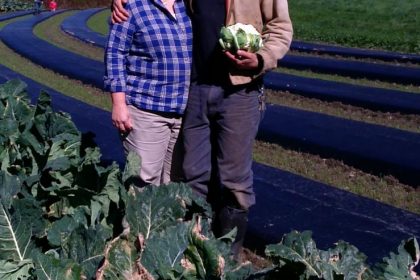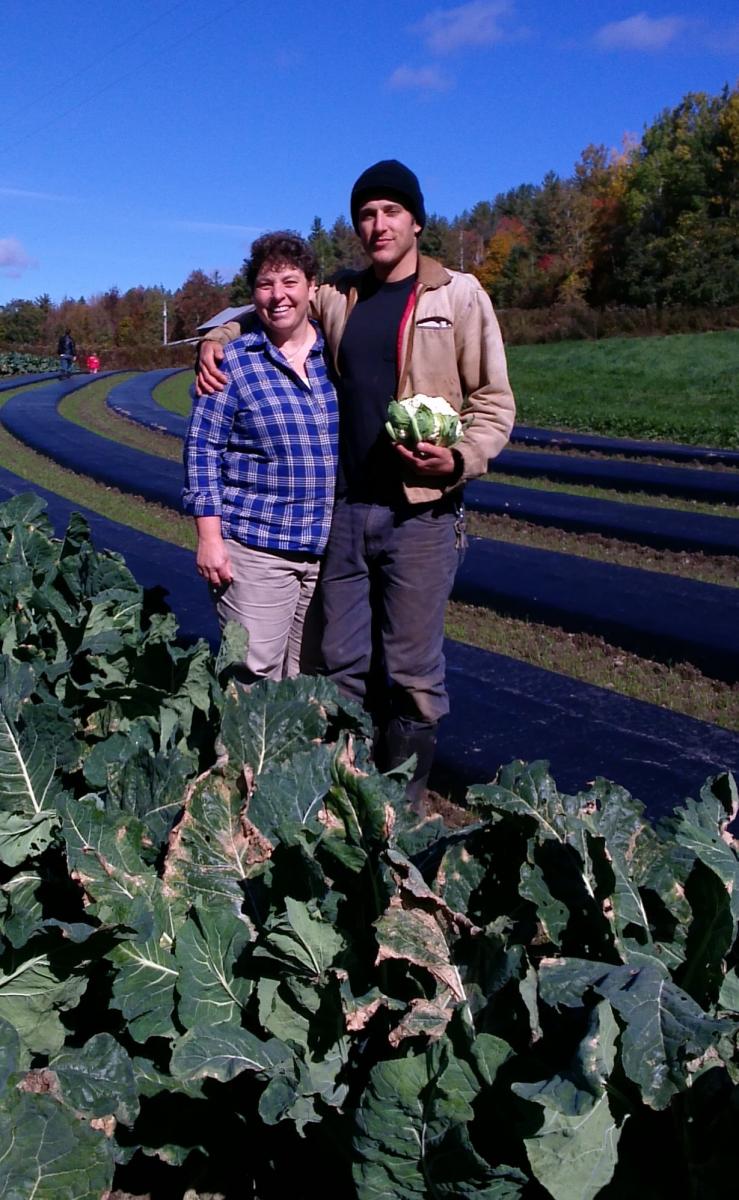
This post was originally published in the Bucknell magazine.
Reliance on locally sourced food fuels a rich community experience
 Everyone eats. And what we eat increasingly matters — for the health of people, animals and the planet. Through our increased exposure to fresh, seasonal and local foods, we now really taste the food we’re eating. Once we try a vine-ripened, sun-soaked tomato from our backyard, picked at its peak of flavor, it’s hard to be satisfied with anything else. Before long, our curiosity about the difference in taste leads us to learn where our food comes from, how it’s produced and by whom.
Everyone eats. And what we eat increasingly matters — for the health of people, animals and the planet. Through our increased exposure to fresh, seasonal and local foods, we now really taste the food we’re eating. Once we try a vine-ripened, sun-soaked tomato from our backyard, picked at its peak of flavor, it’s hard to be satisfied with anything else. Before long, our curiosity about the difference in taste leads us to learn where our food comes from, how it’s produced and by whom.
That’s why there’s been an explosion the last 20 years in the number of farmers markets. They provide a rich community experience and a way to keep our dollars circulating locally, in the pockets of farmers and local food entrepreneurs. Humanely raised, hormone and antibiotic-free meat and cage-free eggs are increasingly important to consumers. Cooking shows and celebrity chefs, along with books by Alice Waters, Mark Bittman, Will Allen and Michael Pollan, are turning people on to home cooking, farm-to-table dining and diversifying our taste buds.
I grew up outside Buffalo, N.Y., where there were family farms and you-pick operations within 10 minutes of my home. My family had a big garden, so we could freeze and can fruits and vegetables for winter eating. At Bucknell, I made weekly excursions to the Mennonite/Amish farmers market in Mifflinburg. There I found fresh fruits and vegetables, homemade breads, jams and preserves. It reminded me of home.
After graduating, I moved to Vermont, where the ennobling gift of agricultural production lives on in the local food system, from small-batch dairy and maple syrup production to nationally recognized names guided by a commitment to sustainable agriculture, such as Ben and Jerry’s, Cabot Cheese and Keurig Green Mountain. For the last 10 years, I’ve led the Vermont Sustainable Jobs Fund, a legislatively enabled nonprofit whose mission is providing financing, technical assistance and other resources to sustainable businesses so they can develop products and services and create jobs in renewable energy and sustainable agriculture and forestry.
In 2009, the Vermont Legislature asked us to create a 10-year strategic plan to further strengthen Vermont’s food system, which has always been a sector critical to our economy, identity, quality of life and sustainability. After a rigorous 18-month public-engagement process, we published the plan and created a network of hundreds of organizations that are collaboratively implementing it.
Our impact has been significant — a testament to growing consumer interest in and demand for high-quality, safe, locally produced foods. From 2009 to 2013, 4,200 new jobs and 665 new farms and food enterprises were created. When measured by employment and gross state product, food manufacturing is the second-largest manufacturing industry in Vermont.
We all have to eat to live, and food is the perfect vehicle for talking about the purchasing choices we make and the messages we send to the marketplace by making different choices. Let’s dig in to the conversation.
Ellen Kahler, Bucknell ’89, is the executive director of the Vermont Sustainable Jobs Fund. She lives in small rural town of Starksboro (pop. 1,600) with her wife, Susanna, and enjoys gardening, skiing and meditating in her spare time. This fall, Kahler received the Art Gibb Award for Individual Leadership from the Vermont Natural Resources Council.
Photo courtesy of Ellen Kahler: Ellen with her organic farmer friend Justin Rich of Burnt Rock Farm in Huntington, VT.




